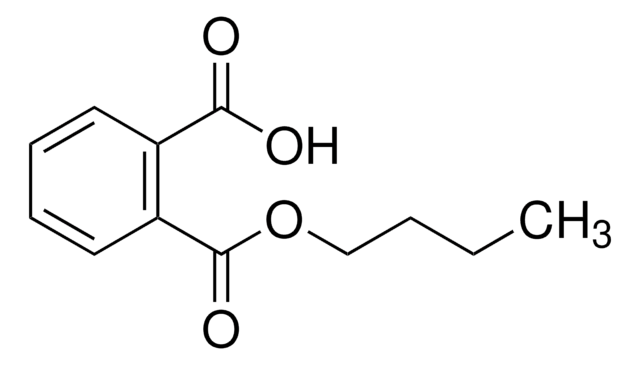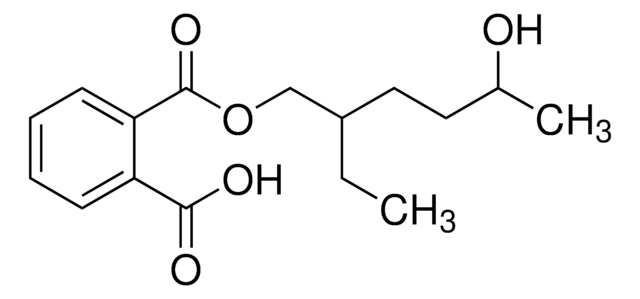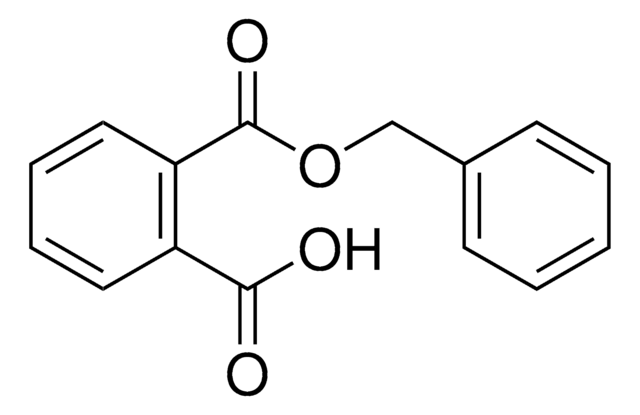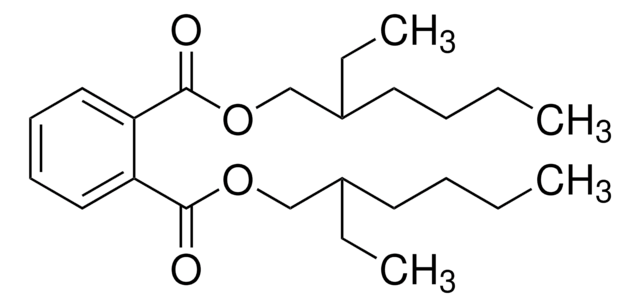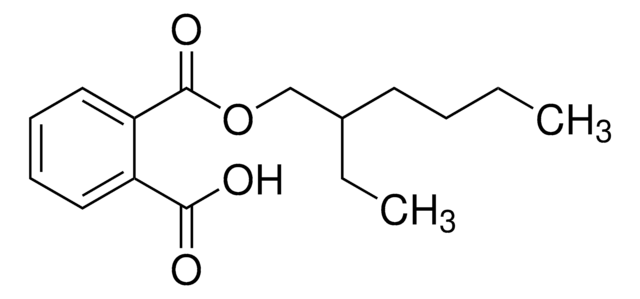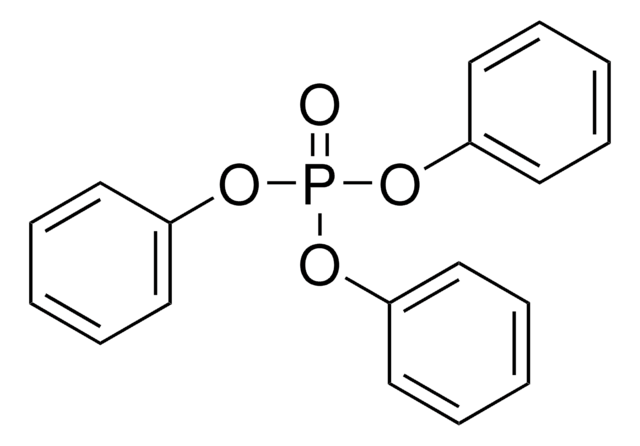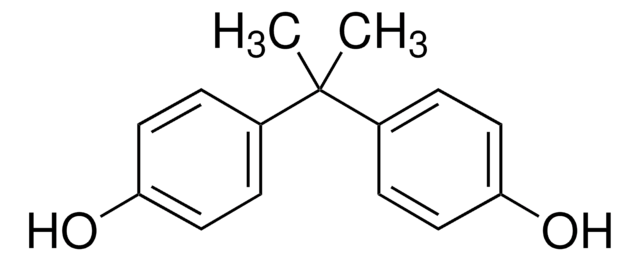36926
mono-Methyl phthalate
analytical standard
Synonym(s):
Monomethyl phthalate
About This Item
Recommended Products
grade
analytical standard
Quality Level
shelf life
limited shelf life, expiry date on the label
technique(s)
HPLC: suitable
gas chromatography (GC): suitable
mp
82-84 °C (lit.)
application(s)
cleaning products
cosmetics
environmental
food and beverages
personal care
format
neat
SMILES string
COC(=O)c1ccccc1C(O)=O
InChI
1S/C9H8O4/c1-13-9(12)7-5-3-2-4-6(7)8(10)11/h2-5H,1H3,(H,10,11)
InChI key
FNJSWIPFHMKRAT-UHFFFAOYSA-N
Looking for similar products? Visit Product Comparison Guide
General description
Application
Recommended products
Storage Class Code
11 - Combustible Solids
WGK
WGK 3
Flash Point(F)
Not applicable
Flash Point(C)
Not applicable
Personal Protective Equipment
Choose from one of the most recent versions:
Certificates of Analysis (COA)
Don't see the Right Version?
If you require a particular version, you can look up a specific certificate by the Lot or Batch number.
Already Own This Product?
Find documentation for the products that you have recently purchased in the Document Library.
Our team of scientists has experience in all areas of research including Life Science, Material Science, Chemical Synthesis, Chromatography, Analytical and many others.
Contact Technical Service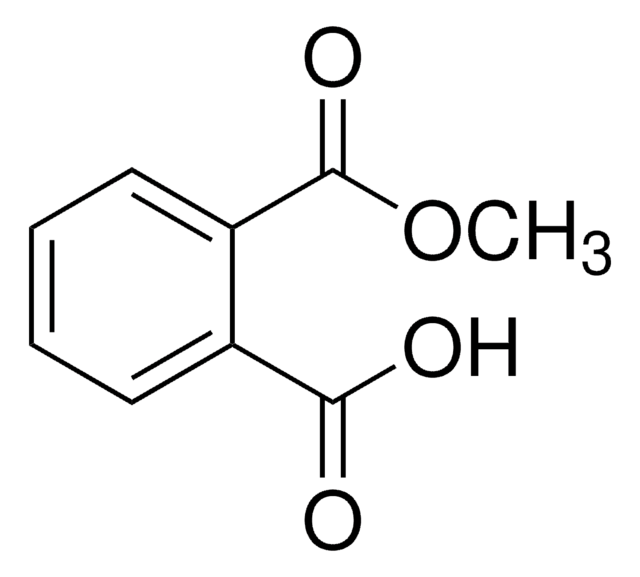
![mono-[(2RS)-2-Ethyl-5-oxohexyl] phthalate analytical standard](/deepweb/assets/sigmaaldrich/product/structures/380/975/47f8fcbc-594c-4f9c-84df-43685552cd06/640/47f8fcbc-594c-4f9c-84df-43685552cd06.png)
